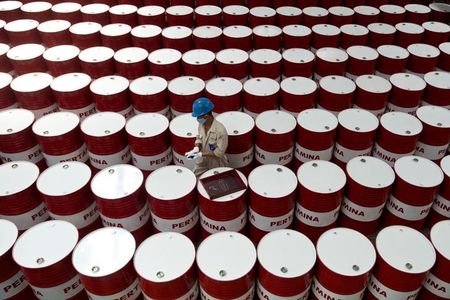
Investing.com – President-elect Donald Trump’s plan to implement sweeping import tariffs during his second term in the White House is potentially the “most bearish” policy development for the energy sector this year, according to analysts at RBC Capital Markets.
Trump, who is set to come to power in less than two weeks, has vowed to impose tariffs of as much as 10% on global imports into the US and 60% on items coming from China. He has also pledged to slap a 25% surcharge on products from Canada and Mexico.
Economists have flagged that the proposal would not only rattle global trade activity, but also threaten to reignite inflationary pressures and spark possible retaliation.
The uncertainty in markets was heightened on Wednesday after CNN reported that Trump is mulling declaring a national economic emergency in order to provide the legal underpinning for the tariffs. Earlier this week, Trump also denied a separate report that his team was mulling scaling back the levies to cover only critical goods.
In a note to clients on Thursday, analysts at RBC led by Helima Croft said that while the ultimate scope of the tariffs remains unclear, the headline duties on China could soften demand in the country and place downward pressure on oil prices. China is the world’s largest crude importer.
Business leaders with significant ties to China may advise Trump to stay away from instituting strict tariffs on the country, Croft predicted.
“We have also heard a view in Washington that President Trump could be amenable to a deal with China if Beijing offered to make large headline purchases of US goods, such as aircraft or even US [liquefied natural gas] imports,” Croft wrote.
“Beijing could also potentially seek to trade a reduction in Iranian crude imports for a tariff reprieve.”
However, Croft flagged that the overall market effect of the tariffs is still “challenging to forecast” because the Trump administration — unlike a prior round of trade tensions in 2018 — will have to weight the impact of the policies with broader macroeconomic worries “still front of mind for many in Washington”.
(Reuters contributed reporting.)
This post is originally published on INVESTING.


